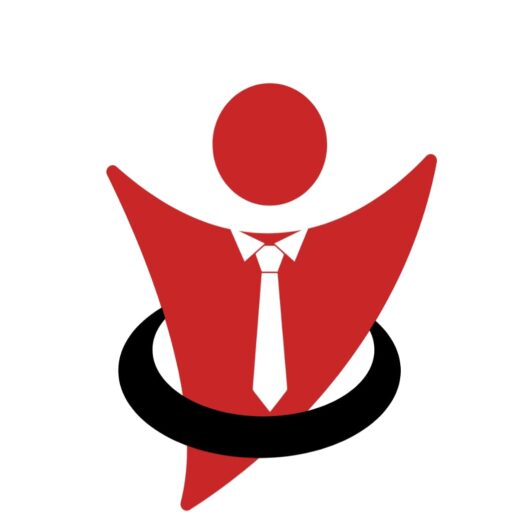In the world of digital marketing, three little letters make a massive difference — SEO, or Search Engine Optimization. You might’ve heard about it in meetings or while chatting with your tech-savvy cousin. But when people start throwing terms like “on-page SEO” and “off-page SEO,” it can get confusing real quick.
Don’t worry — you’re not alone. Let’s break it down in simple terms and see how both these sides of SEO help your website climb up Google’s ladder.
What is SEO in the First Place?
Let’s start with the basics. SEO is the process of optimizing your website so that search engines like Google, Bing, or Yahoo can understand it better and show it to more people when they search for something online.
Think of SEO like preparing your shop — you clean up, arrange items nicely, put up a good sign, and tell people about it. Online, SEO does the same thing for your website.
Now, SEO has two main branches:
- On-Page SEO
- Off-Page SEO
Let’s understand what each one means, with real-life examples.
What is On-Page SEO?
As the name suggests, On-Page SEO includes everything you do on your website to make it search-engine friendly.
It’s like decorating your store and making it neat and welcoming for customers.
Here are a few examples of on-page SEO:
✅ 1. Quality Content
Good content is the heart of SEO. If your blog, product page, or service page provides useful information and is written clearly, search engines love it. Make sure your content answers the user’s questions and includes relevant keywords naturally.
✅ 2. Keywords Placement
Keywords are the search terms people type into Google. Placing the right keywords in your title, headers, meta description, and content helps search engines understand what your page is about.
✅ 3. Title Tags & Meta Descriptions
These are what users see in search results. A catchy title and clear meta description can increase clicks and improve your ranking.
✅ 4. URL Structure
Clean and simple URLs (like www.yoursite.com/seo-tips) are better than complicated ones full of numbers and symbols.
✅ 5. Image Optimization
Use clear images, compress their size for faster loading, and don’t forget to add “alt text” to help search engines know what the image is about.
✅ 6. Internal Linking
Linking to other relevant pages on your website helps visitors stay longer and discover more. It also helps search engines crawl your site better.
What is Off-Page SEO?
Now that your website looks good and is optimized, you need people to know about it. That’s where Off-Page SEO comes in — it includes everything you do outside your website to build its reputation and authority.
Think of it like word-of-mouth marketing for your website.
Here are some key elements:
🌐 1. Backlinks
When other websites link to yours, it’s like a vote of confidence. More high-quality backlinks mean Google trusts your site more. But quality matters more than quantity.
🌐 2. Social Media Presence
Even though social media signals aren’t direct ranking factors, being active and sharing your content on platforms like Instagram, LinkedIn, and Twitter helps drive traffic and build awareness.
🌐 3. Guest Posting
Writing valuable blogs for other reputable websites in your industry can help you gain exposure and backlinks.
🌐 4. Influencer Outreach
If influencers mention or share your content, it can boost your credibility and bring more visitors.
🌐 5. Online Reviews
Getting positive reviews on platforms like Google Business Profile, Justdial, or Clutch boosts trust — not just with people, but also with search engines.
🔍 On-Page vs. Off-Page SEO: Key Differences at a Glance
| Feature | On-Page SEO | Off-Page SEO |
|---|---|---|
| Location | Done on your website | Done outside your website |
| Main Focus | Website content, structure, and user experience | Building credibility, trust, and authority |
| Control | You have full control | You have less control (depends on others) |
| Examples | Keywords, titles, meta tags, content, internal links | Backlinks, social shares, guest blogs, influencer mentions |
| Goal | Make your website readable and relevant to search engines | Show that your website is trusted by others |
Both are equally important. You can’t rank well with just one.
Why Does This Difference Matter?
Now you might think, “Okay, I get it… but why should I care about both?”
Here’s why:
- On-page SEO gets your house in order — making sure everything looks good and works properly.
- Off-page SEO tells the world your house is worth visiting — building reputation, authority, and trust.
Both are essential. One without the other is like having a great restaurant but no customers, or having many customers but terrible food. You need the balance.
Real-World Example
Let’s say you run an online clothing store:
- Your product pages have clear titles like “Men’s Cotton Shirt – Blue,” helpful descriptions, fast-loading images — that’s on-page SEO.
- You collaborate with a fashion blogger who links to your store and posts a review — that’s off-page SEO.
Now, when someone searches for “best men’s cotton shirts online,” Google will see that:
- Your page has all the right information.
- Other sites trust and link to you.
Boom — better chances of ranking on page 1.
FAQs: Quick Answers to Common Questions
❓Is on-page SEO more important than off-page SEO?
Both are important. On-page gives your site structure and quality. Off-page builds trust and authority. Think of it like a team effort.
❓How long does SEO take to show results?
SEO is a long-term game. Usually, you can start seeing noticeable results in 3 to 6 months, depending on your industry and competition.
❓Can I do SEO without a website?
You can work on your online presence (like Google Business Profile), but for full SEO benefits, having a proper website is a must.
❓What’s more important — content or backlinks?
Again, balance is key. Without good content, nobody will want to link to you. And without backlinks, your great content might not reach enough people.
Conclusion
SEO isn’t rocket science — but it does need the right mix of strategy, patience, and consistency. On-page SEO makes your site clean, clear, and relevant. Off-page SEO tells the world that your site is worth visiting and sharing.
At DigiAttire India, we help businesses like yours build both sides of the SEO coin. Whether you’re starting fresh or looking to level up, our team makes sure your website doesn’t just exist — it stands out.
Need help with your SEO strategy? Let’s talk.
📩 Contact DigiAttire India and let’s grow your digital presence the right way.







